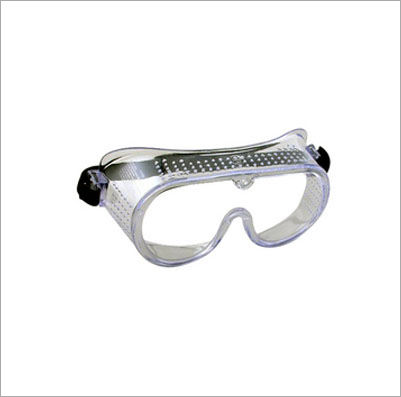Eye Protection

Product Details:
- Gender Male
- Material Plastic
- Color White
- Size Standard
150 INR
X
Eye Protection Price And Quantity
- 10 Piece
- 150 INR
Eye Protection Product Specifications
- Male
- Plastic
- Standard
- White
Eye Protection Trade Information
- Cheque Cash Advance (CA)
- 1-2 Days
- All India
Product Description
Eye protection refers to the use of various protective devices to safeguard the eyes from potential hazards in different environments. It involves wearing protective eyewear, such as safety glasses, goggles, or face shields, to shield the eyes from flying debris, chemicals, radiation, sparks, or other potential dangers.
FAQs:
Q: Why is eye protection important?
A: Eye protection is crucial because the eyes are vulnerable to a wide range of hazards. It helps prevent eye injuries, which can result in pain, vision loss, and even permanent damage. Eye protection is especially vital in industries or activities where there is a higher risk of eye-related accidents.
Q: When should I wear eye protection?
A: Eye protection should be worn whenever there is a potential risk to the eyes. This includes situations such as working with power tools, handling chemicals or hazardous substances, participating in sports or recreational activities that involve projectiles, and performing tasks where there is a possibility of eye contact with harmful radiation or intense light.
Q: What types of eye protection are available?
A: Various types of eye protection are available depending on the level of protection required. Safety glasses with side shields provide basic protection against flying debris, while goggles offer more comprehensive coverage, sealing the eyes from splashes, dust, and chemicals. Face shields provide additional protection to the entire face and are useful for certain tasks.
Q: How do I choose the right eye protection?
A: When selecting eye protection, consider the specific hazards you may encounter. Look for eyewear that meets the appropriate safety standards for your industry or activity. Ensure a proper fit, comfort, and compatibility with other protective equipment you may be wearing. Consult safety guidelines or experts for specific recommendations.
Q: Can I use sunglasses as eye protection?
A: Regular sunglasses do not provide adequate protection against most workplace hazards. They are designed for blocking sunlight and UV rays but may not have the required impact resistance or coverage. It's important to use safety glasses, goggles, or face shields that are specifically designed for eye protection in hazardous environments.
Tell us about your requirement

Price:
Quantity
Select Unit
- 50
- 100
- 200
- 250
- 500
- 1000+
Additional detail
+91
Email
Other Products in 'Eye Protection' category
"We are inviting inquiries only from Andhra Pradesh, Goa, Karnataka, Kerala, Tamil Nadu, Telangana".










